These past two months have provided a handful of releases by major institutions from across the spectrum of subgenres. Dragonforce are back with the cheekily titled Extreme Power Metal, a phrase they actually coined back in 2004 to put on the sticker of Sonic Firestorm. And while some may snicker, its fair to say Dragonforce really were pioneers in marrying extreme tempos and drum patterns (blastbeats) to ultra melodic power metal, and that maybe they’ve earned the right to weirdly use that tag over a decade later on their eighth studio album. Similarly, Opeth were pioneers in a different way altogether, marrying melody to death metal in a way that had nothing to do with the Gothenburg melodeath sound of the mid-90s era that the band was birthed in. They’ve long since moved onto prog-rock pastures of course, and their newest In Cauda Venenum continues this trajectory. Then there’s the proggy black metal of Borknagar, who are releasing their first album with ICS Vortex at the grim vocal helm since 1999’s Quintessence, with Vintersorg having bowed out of the band last year, ending an eighteen year tenure. There’s a lot to dissect with all three, and of course there’s a few releases here by newer artists that I’ve spent a considerable amount of time with too. Sleeping Ancient from Houston has released a buzzworthy debut, and then there’s Everfrost who are probably gonna be new to most of you but are releasing their sophomore album that’s catching a lot of interest due to their interesting twist on the album release. A wildly varied mix of new stuff, and there’s going to be more on the way, for now:
Dragonforce – Extreme Power Metal:

Its been interesting to hear the chatter around Dragonforce grow louder over the course of the recording of their newest album, Extreme Power Metal, due to Herman Li’s clever immersion into the Twitch community. There fans got to witness not only the recording of the new album in all its meticulous tedium (and if the internet has taught us anything, nothing is too tedious), but also experience band rehearsals and soon, the band’s tour where they’ll be streaming at every tour stop for a real behind the scenes peek at life on the road with Dragonforce. I’ve watched a few of Li’s streams on replay, as well as Matt Heafy’s replays from his own popular Twitch channel, and this is a brave new frontier for band promotion if I’ve ever seen one. Not all musicians would be cut out for it or feel comfortable doing it, but for a select few, this could be a great way to keep one’s audience engaged throughout downtimes and in a more connected, personal way rather than just the typical social media posts or YouTube vlogs. For Dragonforce, its created a noticeable buzz, most recently coalescing in the band performing a set at the Twitch Con 2019’s opening ceremony. There they debuted a snazzy stage set with old school arcade cabs that Herman Li and Sam Totman could stand atop of, guitar hero (ahem) style. I gotta say, even though I may not have enjoyed all the records entirely, its refreshing that even I started to feel excited about the band right now. I don’t think anyone expected them to still be around, that something would’ve derailed them at some point, but power metal is more fun with Dragonforce around —- they’re such an audacious spearhead of the genre that I feel we should all embrace them.
If the cover art wasn’t a clue, the band have decidedly leaned towards their lighter, video game nostalgia referencing sensibilities for Extreme Power Metal, a hard turn away from the darker approach of their last three records. The vibe here recalls the Inhuman Rampage / Ultra Beatdown era, and its refreshing to hear vocalist Marc Hudson in this context, his tenure up to this point on his three album appearances being associated with more serious, angsty lyrics at times (not a bad thing in my view, but it was strikingly different than what we all associated ZP Theart with). It helps that Sam Totman and former bassist (now in Kreator) Frédéric Leclercq delivered some of the most carefree and vibrantly fun material the band has tackled in well over a decade. Songs like “Highway to Oblivion” and “Cosmic Power of the Infinite Shred Machine” ring with those unmistakable classic era Dragonforce hyper-major key hooks that are bursting to the seams with cheerfulness. Even the title of the latter seems like a knowing callback to the Inhuman era, albeit marked with the post 2012 era’s tendency to slow things down a bit and keep the tempos fluctuating. There’s a handful of addictive cuts here, among them “In a Skyforged Dream”, a song that were it longer would remind me of the Sonic Firestorm era for its trope heavy, vaguely fantasy alluding lyrics and dramatic, theatrical stop/starts. The solos towards the end are fantastic, the kind of mirroring of the main melody affair that I’m just a sucker for. And proving that the band’s experimental streak in the Hudson era is still alive and well, there’s the unusually paced and martial drumming infused “Remembrance Day”, a risky song that could’ve easily been a disaster, but somehow it kinda works and has an endearing charm in its tribute to previous generations of fallen soldiers.
My personal highlights however are a pair of songs that will end up on the old iPod, as de facto best of Dragonforce cuts in “Strangers” and “The Last Dragonborn”. The latter is about exactly what you’re thinking, namely the Elder Scrolls Skyrim, complete with references to Whiterun and Tamriel —- first of all, its refreshing alone to simply have references to actual fantasy locations in a Dragonforce song for once, instead of the eternal fantasy steeped vagueness that they work with. There’s so much to love here, be it the vaguely Eastern sounds that shape the overall melodic structure along with the cinematic orchestral arrangement courtesy of Epica’s Coen Janssen; or the dramatic rise and crash of the bridge-to-chorus where Hudson turns in a command performance; or the gorgeous mid-song bridge at the 4:18 mark that brings me back to standing on top of High Hrothgar watching the sunrise. But my favorite on the album is undoubtedly “Strangers”, a mid-tempo banger built in the streamlined approach that informed a lot of The Power Within, largely due to being a Leclercq penned song, and if memory serves he wrote “Seasons” from that album as well. If the band loses the ability to knock out unimaginable catchy mid-tempo hits like this with Leclercq’s departure, that will indeed be a shame (although I’m really looking forward to seeing if Li starts writing more). And then of course, there’s the band’s absolutely wonderful, giddily delightful cover of “My Heart Will Go On”, and in the same vein as their cover of Johnny Cash’s “Ring of Fire”, they stay faithful to the original melody while Dragonforce-izing the song with speedy percussion and furious guitar wizardry. I love everything about this cover, from the silly videogame fx at the beginning to Hudson’s impassioned performance —- they take the song just seriously enough, because dammit, the Celine Dion original is indeed a beautiful song and demands it. I always knew its melody would’ve fit into a power metal context and its a shock and joy to hear it come to fruition. To close, if you were checked out on Hudson era Dragonforce because it seemed tonally different to the old days, this album is the moment to dive back in.
Borknagar – True North:

I was more than a little curious as to what Borknagar would sound like without Andreas Hedlund (aka Vintersorg the man the myth the legend) at the vocal helm. For the past seventeen years, he has laced Øystein Brun’s avant-garde black metal with his rich, otherworldly baritone clean vocals and of course those fierce, frostbitten grim vox too. His presence on any record he’s involved with, be it Borknagar, his own Vintersorg solo project, Otyg, Cronian, etc is hugely influenced by his mere presence, the same way Hansi just brings an encompassing envelope of characteristic sound that is unmistakable. Vintersorg clearly shaped and influenced the Borknagar sound from Empiricism through Winter Thrice, regardless of whether or not he had a hand in the songwriting. Things have been different for him however since his 2014 head injury during an accident where he fell from a ladder. He was a little less prominent on Winter Thrice, as ICS Vortex and Lazare (Lars Nedland) saw increased roles handling the vocals, and his once prolific output has slowed to just two releases in the past five years, the aforementioned Winter Thrice and 2017’s Till Fjalls II. His reasoning in the statement to fans and media was that he didn’t want to hold the band back from touring due to his day job commitments and his “situation after the accident”. That stuff about the touring I kind of took with a grain of salt, because he’s sat out the band’s performances many times before, and Brun himself has a full time gig in IT and can’t commit to lengthy tours either. Sadly, its likely that the real reason is that he has to prioritize things now, and his own musical projects are the only thing that will fit in alongside what I’m assuming has been a grueling road to recovery. That its not a lack of enthusiasm, but rather scheduling and time that’s ending his participation is a bummer, but its also proved to be an opportunity for the band to try new things and stretch their sound.
And stretch their sound they have on True North, with Vortex and Lazare splitting the clean vocals and giving big assists in the songwriting department alongside Oystein, this is the most adventurous Borknagar album since Origins, and I’d argue, since Empiricism. There’s a brighter tone to these songs, and a sense of spaciousness to the songwriting that is uncommon for this band, normally so compressed and dense in their compositions. This is apparent from the jump on “Thunderous”, the most conventional track on offer but still a noticeably measured and dare I suggest, stately paced track despite the blackened, blast beat fuelled passages. Really its on “Up North” where people are going to hear the most striking changes, the song being a major key laced, Hammond drenched Uriah Heep-ian jam with Vortex delivering some James Hetfield growls in his largely clean lead vocal role. He seems to have written this piece solo too, and its fascinating to hear just how writing with his own voice in mind (as opposed to Vintersorg’s) helped shape the outcome to be this different. The unusually structured “Lights” is another bold experiment for the band, a combination of extreme metal moments packed with Porcupine Tree-like prog-rock artistry. Then there’s the gently swaying ballad(!) “Wild Father’s Heart”, where Lazare pours out some incredibly melancholic and heartbreaking vocal melodies. But my fave right now is the Lazare written and sung “Voices”, which is the most accessible thing the band has ever done, a bold slice of art-pop ala Dead Can Dance. Its the tip of the iceberg for things you’d never think to associate with this band, but somehow it fits and doesn’t sound out of place. This is the beginning of something radically different for Borknagar, and its more exciting than I ever thought it could be.
Everfrost – Winterider:
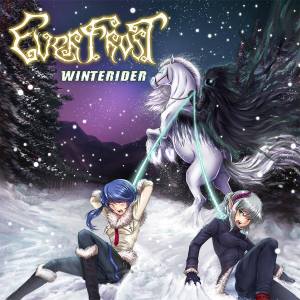
That Everfrost hail from Finland shouldn’t surprise any of you once you hear the first few keyboard notes of Winterider, but you might be forgiven for thinking they might’ve been from Japan for a second. Yes, those are manga styled characters in the album artwork, and in fact, this album was released with an actual manga comic book that details the storyline alluded to in these songs, a neat crossover mixed media approach that the band is trying out that I’ve often wondered why more bands don’t dare to attempt. It was the unusual nature of said album art that I saw in my inbox that got me to check out the promo of Winterider, bracing myself for a cringefest that would have me deleting it on the spot —- yet what I discovered was inspired, incredibly fun sugary power metal reminiscent of the halcyon days of early Sonata Arctica. Indeed Tony Kakko is a clear influence here, not only on the vocal approach by Mikael Salo, whose accent often makes him a dead ringer, but also in the songwriting approach of band founder and keyboardist Benjamin Connelly. For any of you who were disappointed in Sonata’s recent Talviyö and long for that band to return to the Ecliptica / Silence / Winterhearts era, you might wanna bounce on over Everfrost’s way and check out note perfect slices of Finn-power such as the powerful title track “Winterider”. Built on sugary synth lines and a crisp, dare I say wintry separation of instruments, topped with lush harmony vocals, this song is as wonderfully decadent as the most hooky classic Sonata era cut. It also sports an unusual, “Don’t Stop Believin'” arrangement, where the true chorus doesn’t appear until 3:30 seconds into the song, that being an unforgettable, spirited group sing of the song title. This kind of flair and flexibility to deviate from traditional verse/bridge/chorus structures is rare in melodic power metal bands, who tend to cling to those tried and true approaches.
There’s a focus in Connelly’s songwriting to be as concise as possible, with verses mainlining to get to a hook or refrain, but also to be as indulgently stylistic as possible on the way there. Take “Cold Night Remedy”, where the straightforward verse sections are anchored by a solid Scorpions-esque mid-tempo riff and drum beat, but guitarist Markus Laito is off the leash, free to add flurries of notes at will and to tack on creative angles and unexpected tails. There’s just so much ear candy present everywhere, as on “Actraiser” where the keyboards and guitars battle back and forth for control of the primary melody while Salo outstrips both in time for the chorus where his vocal melody surges upwards in one of the catchiest hooks in power metal this year. Its also a particularly Kakko-esque moment, and while I’m trying to not beat the Sonata drum too much in this review, its kind of impossible not to. I don’t think that’s a bad thing either, because frankly, Everfrost are filling a void that was deeply felt by many power metal fans once Sonata drifted into more rambling, eclectic songwriting territory. On the ballad, “Above The Treeline”, we’re hearing that overwhelming influence manifest itself in beautiful, chiming piano melodies that help build up the dramatic tension alongside Salo’s impassioned vocals, the singer delivering his best performance of the album. Salo is also awesome on the riskiest cut on the album, that being a fairly faithful cover of Kesha’s global hit “Die Young”, a choice that not only seems to fit the shimmering, exuberant tone of the album as a whole but sounds great set to rockin’ riffs. I’m not sure how this fits into the album’s storyline, I’m sure there’s a valid reason, but no matter —- simply electing to cover such an unlikely choice of pop song is the very essence of a Sonata influence (they who so gloriously covered Bette Midler’s “The Wind Beneath My Wings”). This is a hugely enjoyable album, and Everfrost do bring enough personality to the table to prevent the copycat label, but that being said, this is terrific tonic for anyone left frustrated by the last decade plus of Sonata.
Opeth – In Cauda Venenum:

Four albums deep now into Opeth’s post metal career, I think most of us have given up on the idea of a return to their prog-death roots. It was all but eliminated for me when I saw the footage of their pro-shot show at Red Rocks, where Mikael Akerfeldt struggled to muster up even a reasonable facsimile of his once glorious death growl (“Demon of the Fall” was particularly saddening). Despite this opening statement however, I don’t hold it against Akerfeldt, because his reasoning makes sense, and I have given Opeth’s post Watershed output a fair hearing, and even liked the odd song here and there. What troubles me though is this sense that Akerfeldt has become a less engaging songwriter ever since he’s loosened up in this free-form, jazzy, prog-rock steeped milieu. I loved the softer moments of the classic Opeth discography, from large chunks of Damnation, to all the quiet valleys of Still Life, Blackwater Park, Deliverance, and Ghost Reveries. Part of the appeal of that quiet/loud dynamic of the classic era was that Akerfeldt was just as compelling a songwriter and vocalist during the hushed, tranquil sections as he was during the brutal passages. From Heritage onwards though, I have rarely heard that kind of quality (only once really, on “Faith In Others” off Pale Communion), and frequently have felt like I’m listening to a plate of musical noodles on these newer albums. On the new album, “Heart In Hand” has a relatively compelling rhythmic dynamic working for it, with a propulsive riff getting things going, except that there’s nothing substantial in the way of a bridge leading to the chorus. It all mushes together, like when you go out for Indian food and long for some other texture amidst the curried meats, curried vegetables, and pillowy naan bread —- its all a bit soft isn’t it? Take “The Garroter” for example, where an intriguing opening guitar figure never really leads anywhere all that interesting, just dissolving in an ambient, soupy mess. There’s some heavy hitting explosions in “All Things Will Pass” that perked my interest, but it wasn’t until the very end where an all too brief sparkling melody made its quick appearance and then faded off. I dunno… it might be time to call it on Opeth. Four albums in a row where one is left disappointed might be overkill. I check out every release out of obligation but this is an exercise in exasperation.
Sleeping Ancient – There Is No Truth But Death:

Sleeping Ancient is the latest in a slowly expanding crop of Houston based metal bands to make a splash online, with Invisible Oranges and Decibel among the major outlets that have covered them in the recent month plus since the release of this debut album. To their credit, like a few other noteworthy Houstonian metal exports they have a unique sound for a band from this city, a blend of post-metal with black and doom infusions. Its a sound that stands out from a local perspective, being far removed from the local TXDM (Texas death metal if you couldn’t guess) scene, and has more in common with geographically far-flung North American bands like Russian Circles, Numenorean, or Isis (no, not that Isis). I’ve slowly listened to this album over the past month —- I say slowly because I can’t emphasize enough just how much this is a mood dependent listen, for me anyway. Usually at night, when things are winding down its just about the right headspace for the meditative, hypnotic circular nature of “A Locked Room”, or the tension building “Disillusionist”. Those two are instrumentals, and there are three of those total on a seven track album which I’ll admit is a puzzling decision. I get it, its post-metal, and “post” means that there’s a lot of leeway in an almost free-form exploration of sound, but I found myself wanting another track in the vein of “A Path Emerges” and “Writhing in the City of Dregs” (which I can only assume is a paean to our lovely weather). The former has the most memorable intro passage of the entire album, with a distinct melodic motif that creeps in during its slower passage halfway through. The latter is the most consistently engaging song from start to finish, although I feel its ending needed something a little more straightforward, like a focused, catchy, aggressive riff to make everything else hit like the proverbial hadoken. This is a promising debut, far from perfect by any means (a little less meandering and more riffs would go a long way), but worth investigating during the moonlit hours.


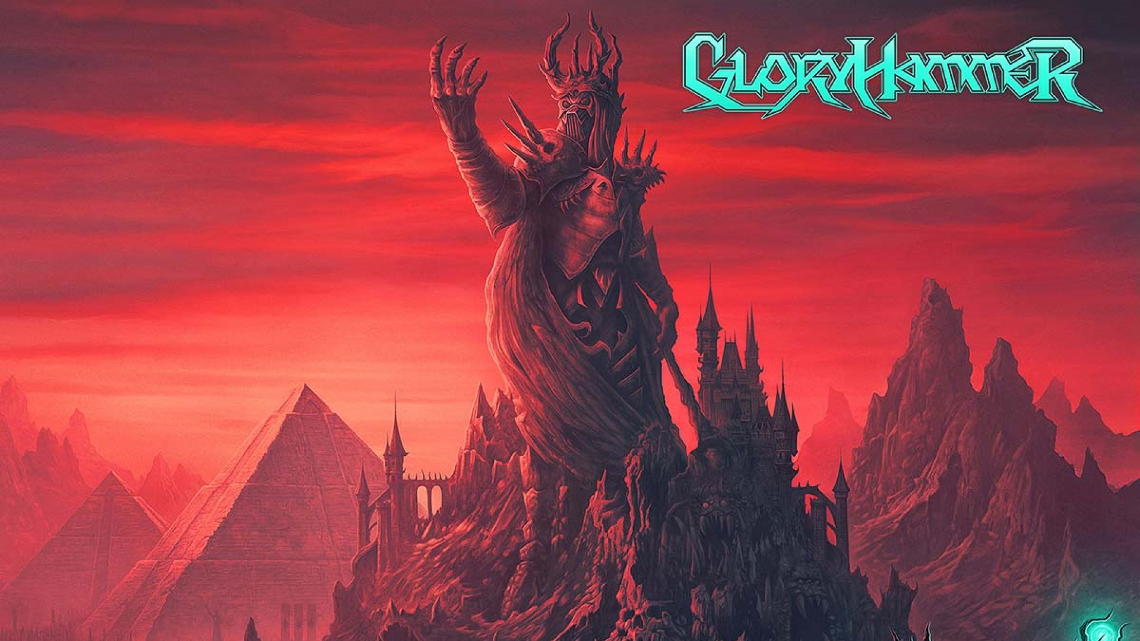
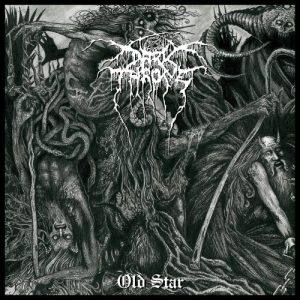


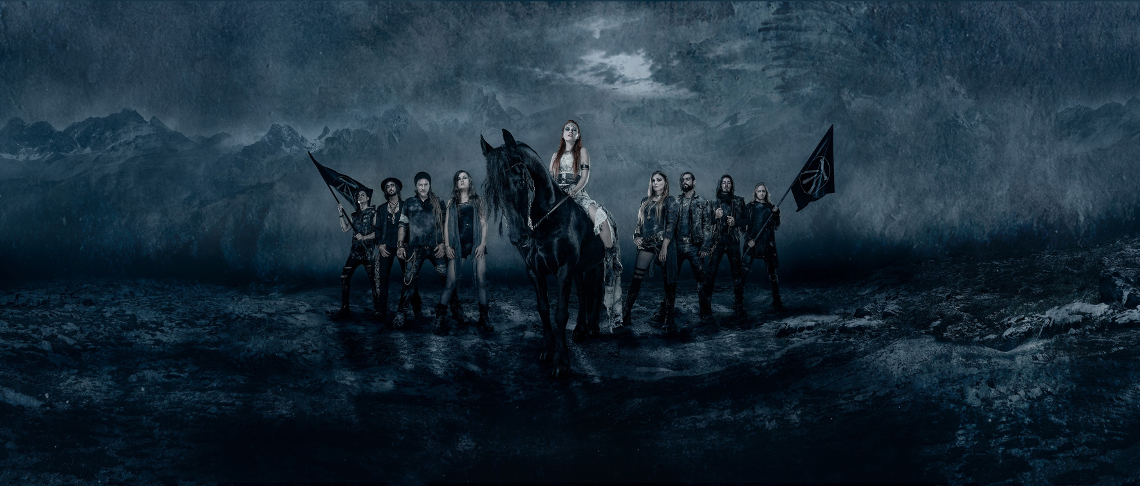

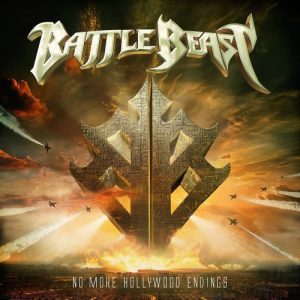


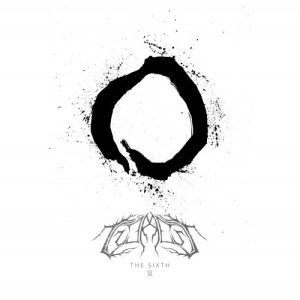


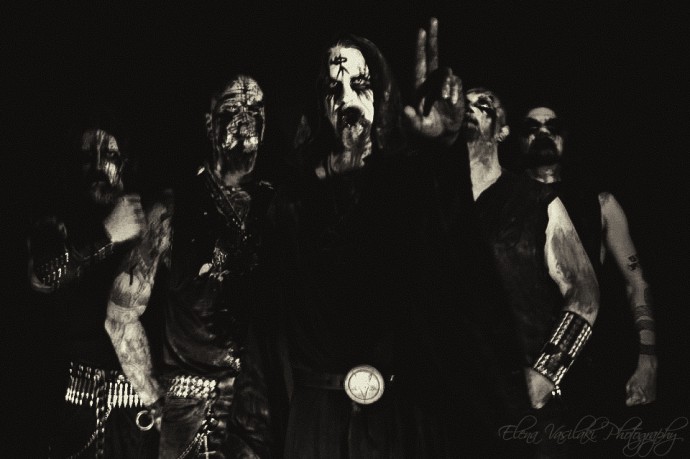





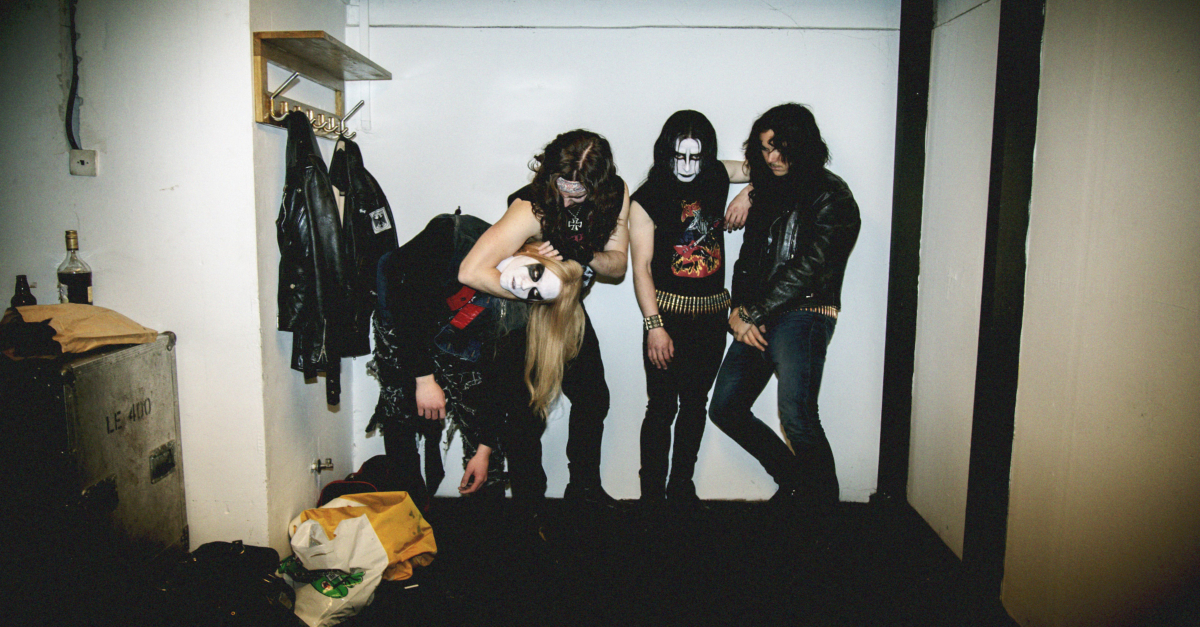





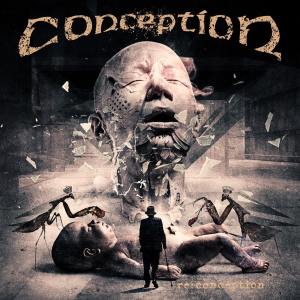

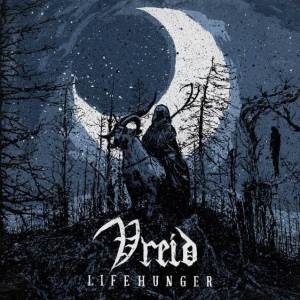


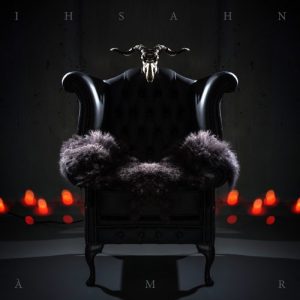
 We’ve had a few really solid months in terms of quality metal output, and I’ve been somewhat on top of most things this year which is a change from my usual flailing around. I’ve likely missed something somewhere but given the amount of time already spent listening to music, I don’t think I could cram anymore in. Here’s a few of the things I thought were noteworthy and worth talking briefly about, the ones that didn’t make it in this time might see the light of day next go round. If you really think I’m missing something that needs to be heard by all means let me know in the comments below, I need all the help I can get!
We’ve had a few really solid months in terms of quality metal output, and I’ve been somewhat on top of most things this year which is a change from my usual flailing around. I’ve likely missed something somewhere but given the amount of time already spent listening to music, I don’t think I could cram anymore in. Here’s a few of the things I thought were noteworthy and worth talking briefly about, the ones that didn’t make it in this time might see the light of day next go round. If you really think I’m missing something that needs to be heard by all means let me know in the comments below, I need all the help I can get! Judicator – The Last Emperor:
Judicator – The Last Emperor: Barren Earth – A Complex of Cages:
Barren Earth – A Complex of Cages:
 Nightwish – Decades:
Nightwish – Decades: Primordial – Exile Amongst The Ruins:
Primordial – Exile Amongst The Ruins: Oceans of Slumber – The Banished Heart:
Oceans of Slumber – The Banished Heart: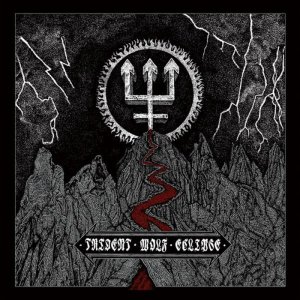 Watain – Trident Wolf Eclipse:
Watain – Trident Wolf Eclipse: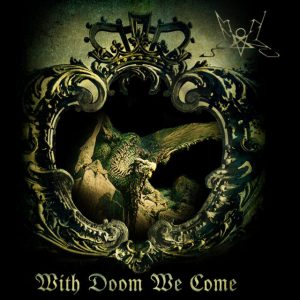 Summoning – With Doom We Come:
Summoning – With Doom We Come: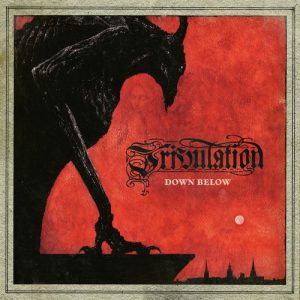 Tribulation – Down Below:
Tribulation – Down Below: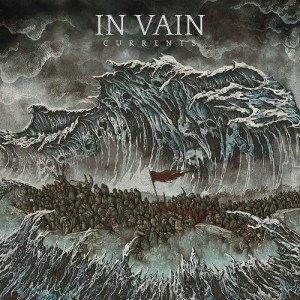 In Vain – Currents:
In Vain – Currents: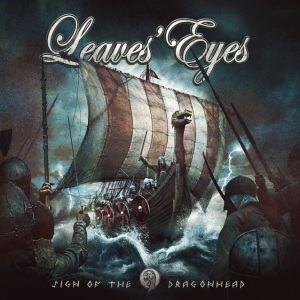 Leaves Eyes – Sign of the Dragonhead:
Leaves Eyes – Sign of the Dragonhead: